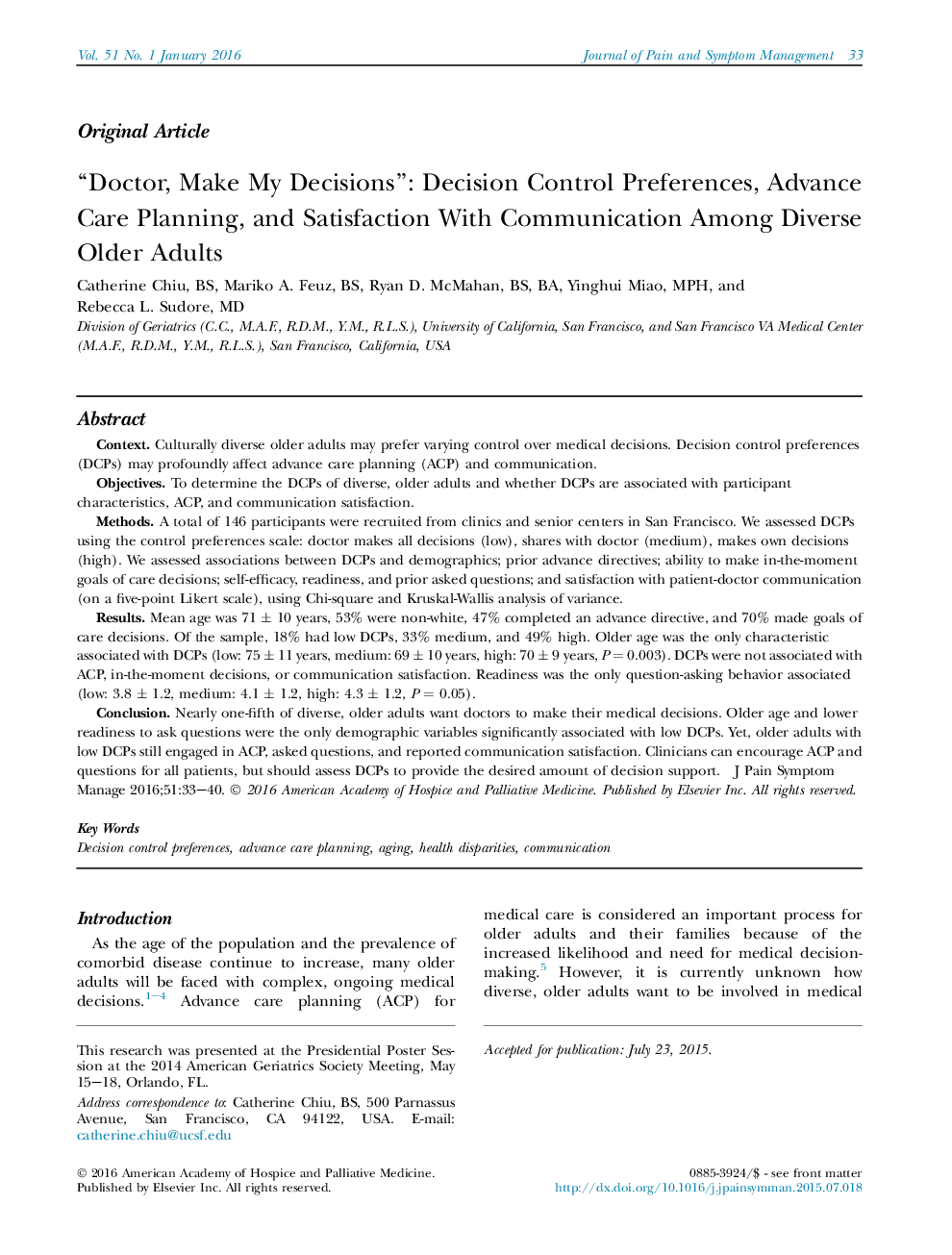| کد مقاله | کد نشریه | سال انتشار | مقاله انگلیسی | نسخه تمام متن |
|---|---|---|---|---|
| 2733715 | 1147621 | 2016 | 8 صفحه PDF | دانلود رایگان |

ContextCulturally diverse older adults may prefer varying control over medical decisions. Decision control preferences (DCPs) may profoundly affect advance care planning (ACP) and communication.ObjectivesTo determine the DCPs of diverse, older adults and whether DCPs are associated with participant characteristics, ACP, and communication satisfaction.MethodsA total of 146 participants were recruited from clinics and senior centers in San Francisco. We assessed DCPs using the control preferences scale: doctor makes all decisions (low), shares with doctor (medium), makes own decisions (high). We assessed associations between DCPs and demographics; prior advance directives; ability to make in-the-moment goals of care decisions; self-efficacy, readiness, and prior asked questions; and satisfaction with patient-doctor communication (on a five-point Likert scale), using Chi-square and Kruskal-Wallis analysis of variance.ResultsMean age was 71 ± 10 years, 53% were non-white, 47% completed an advance directive, and 70% made goals of care decisions. Of the sample, 18% had low DCPs, 33% medium, and 49% high. Older age was the only characteristic associated with DCPs (low: 75 ± 11 years, medium: 69 ± 10 years, high: 70 ± 9 years, P = 0.003). DCPs were not associated with ACP, in-the-moment decisions, or communication satisfaction. Readiness was the only question-asking behavior associated (low: 3.8 ± 1.2, medium: 4.1 ± 1.2, high: 4.3 ± 1.2, P = 0.05).ConclusionNearly one-fifth of diverse, older adults want doctors to make their medical decisions. Older age and lower readiness to ask questions were the only demographic variables significantly associated with low DCPs. Yet, older adults with low DCPs still engaged in ACP, asked questions, and reported communication satisfaction. Clinicians can encourage ACP and questions for all patients, but should assess DCPs to provide the desired amount of decision support.
Journal: Journal of Pain and Symptom Management - Volume 51, Issue 1, January 2016, Pages 33–40